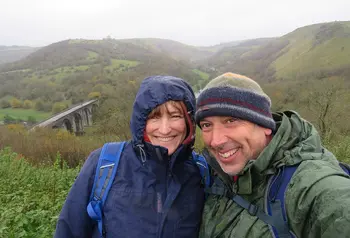Recovery and resilience: advice from a heritage project improving skills and wellbeing

Their work is transforming the lives of some of the most vulnerable people in their community who face stigma, social isolation and mental health problems.
The project was made possible by £400,000 in National Lottery funding and strong local partnerships with Alternatives – a local addiction support charity – and the Scottish Maritime Museum.
Lead your project with love and respect for the people you work with.
Jade West, Community Engagement Lead at Alternatives
Skylark IX's inspirational story
Skylark IX is one of the last survivors in Scotland of a fleet of ‘little ships’ that evacuated Allied soldiers from the beaches of Dunkirk in the Second World War. After the war the boat was a pleasure cruiser before coming to Loch Lomond. She became a focal point for local veterans remembering their fallen comrades.
The Skylark sank in 2010 after falling into disrepair. Her powerful story of resilience kick-started a community effort to save this unique piece of history. Raised from the riverbed, work took place to preserve a lifebuoy and the wood and paint bearing the boat's name which were in danger of deteriorating completely.
When the team received the news from a specialist maritime surveyor that the Skylark was ‘beyond economical repair’, the trust had to leave behind their dream of restoring and re-floating the boat. Their plan is to create the Spirit of Skylark Centre, a heritage attraction to display the broken beauty of the Skylark and tell her story of wartime resilience. The centre will deliver boatbuilding training, eventually hoping to offer apprenticeships to help people boost their employability and wellbeing.
Learning new skills, building self-worth
One part of the project was building a skiff, a 22-foot long wooden rowing boat, to help people on their journey recovering from addiction. The learning and teamwork involved in creating the boat helped people build friendships, resilience and confidence.
One of the project volunteers said: “Volunteering with The Skylark IX Recovery Trust has given me back a good day working as I was lacking a daily routine. I am proud to be a part of the Skylark story, as the Skylark IX saved a lot of lives during World War II.”
The project also includes a community sewing group that first started during the coronavirus (COVID-19) pandemic.
In 2020 they created a Lockdown quilt inspired by the Skylark IX’s story and experiences of lockdown, and they're now working on a Skylark tapestry.
sewing group, standing with the lockdown quilt
A participant in the group said: “It’s a nice sociable group, we chat away and we’ve all got new friendships out of it. Most weeks we talk about the boat, its links to Alternatives and the story of recovery. It’s been important for me in my own recovery from health problems and my mental health from COVID.”
Lessons learned
We spoke to Jade West, Community Engagement Lead at Alternatives who shared her learnings from the project.
Fully involve your participants
Jade says: “Lead your project with love and respect for the people you work with. Invest time into really listening to your participants, and celebrate their successes together. Never underestimate the importance of meeting the needs of volunteers such as supporting access to active participation and decision making.”
Working for the community
“Keep things community-led by coproducing activity that makes sense to your project but more so to the community. This is where you’ll find truly sustainable and meaningful outcomes, and it also makes best use of a community’s assets, knowledge and experience.”
Your project can change lives
“It’s important to be a sounding board for your participants’ ideas – working with them in this way can create space for transformation, support and purpose.”
Get funding for your project
We believe heritage has the power to change lives, and we’re keen to support heritage projects which will help people develop skills and improve their wellbeing. Take a look at our funding programmes.





